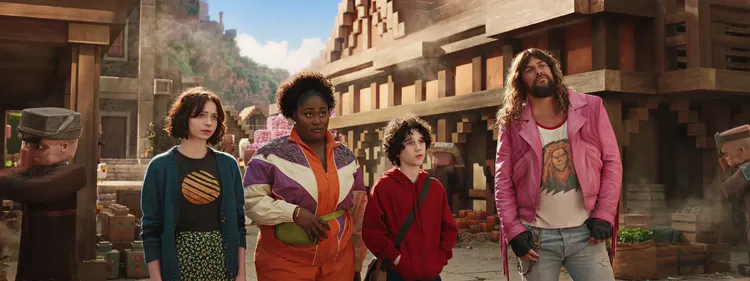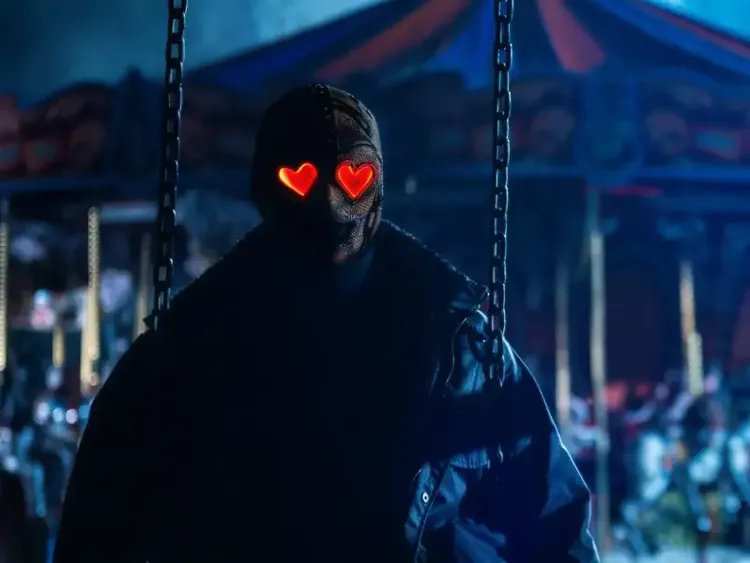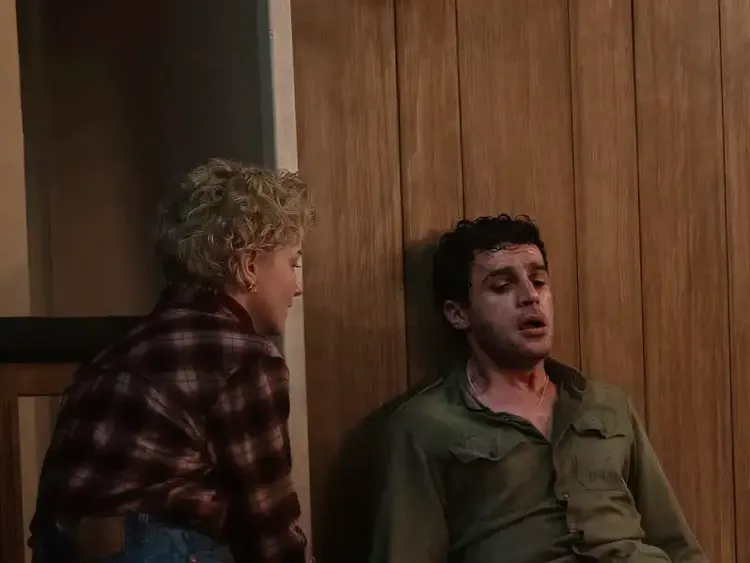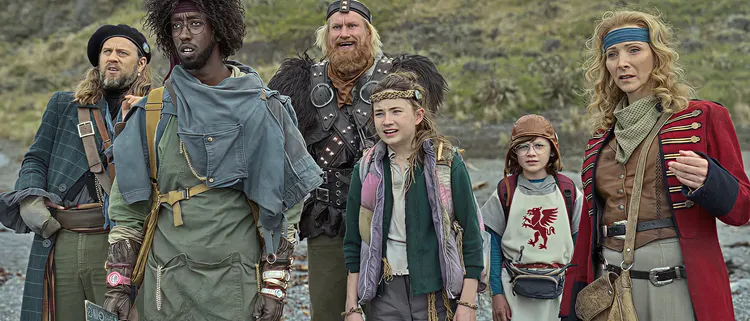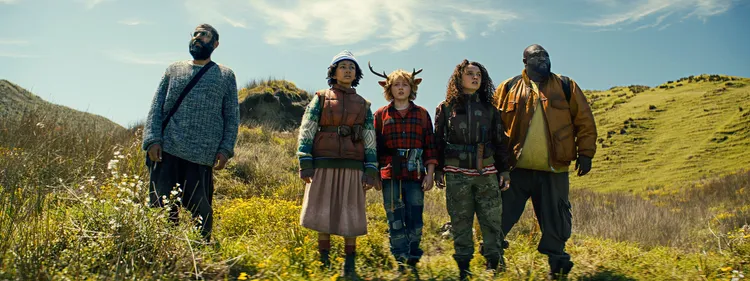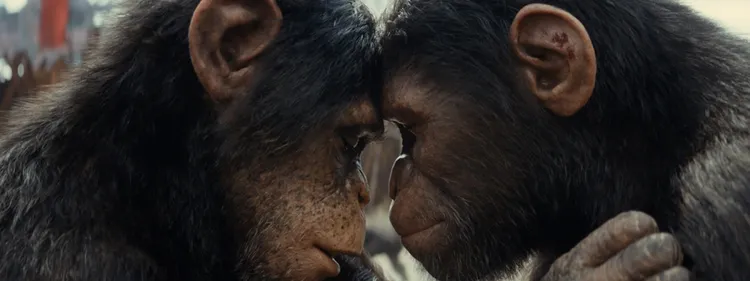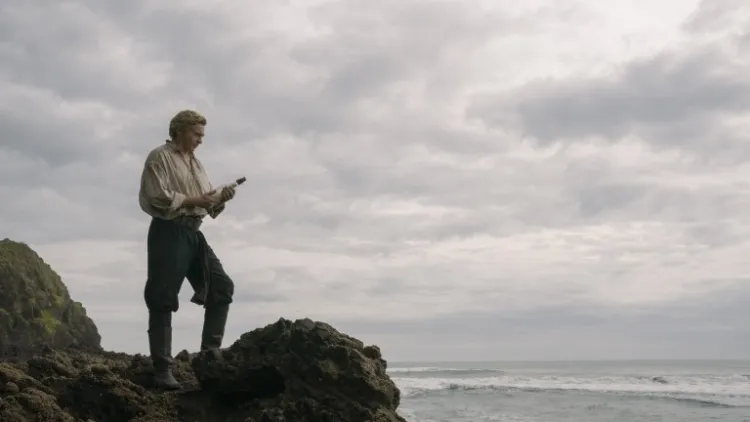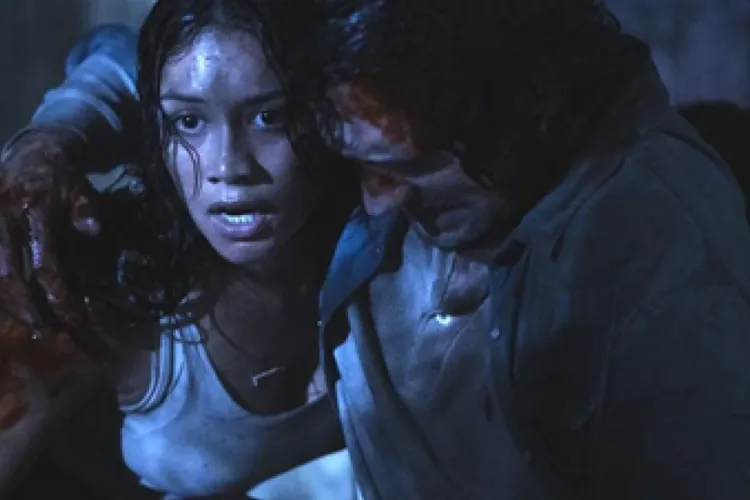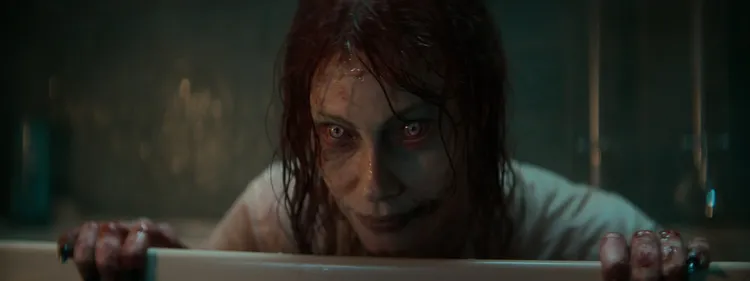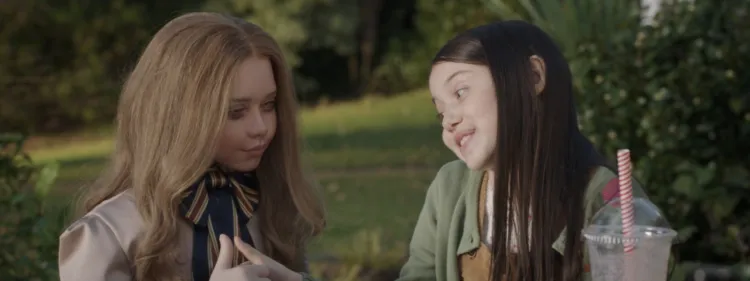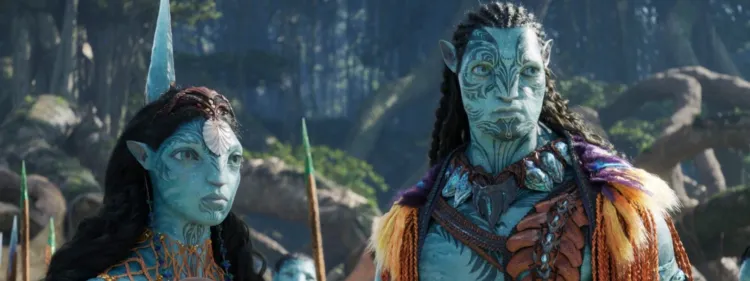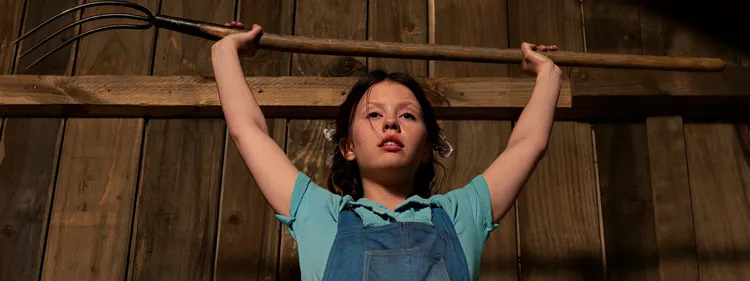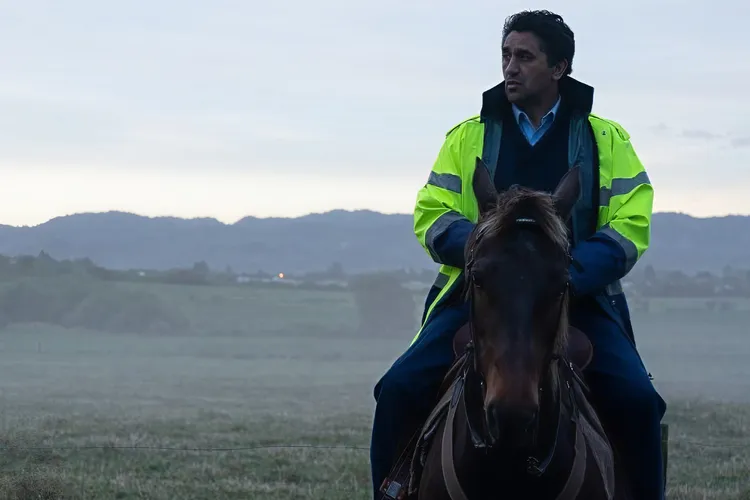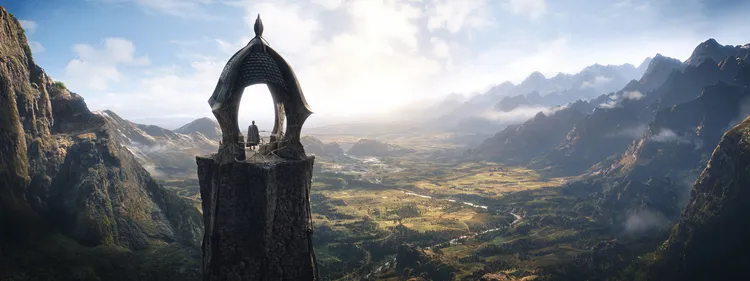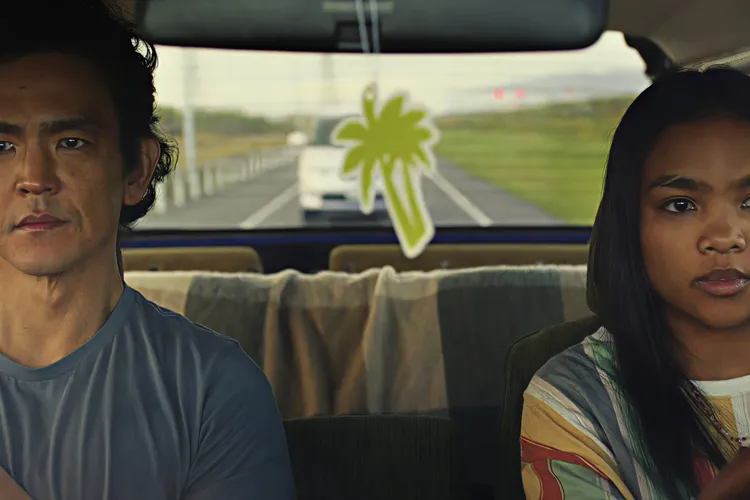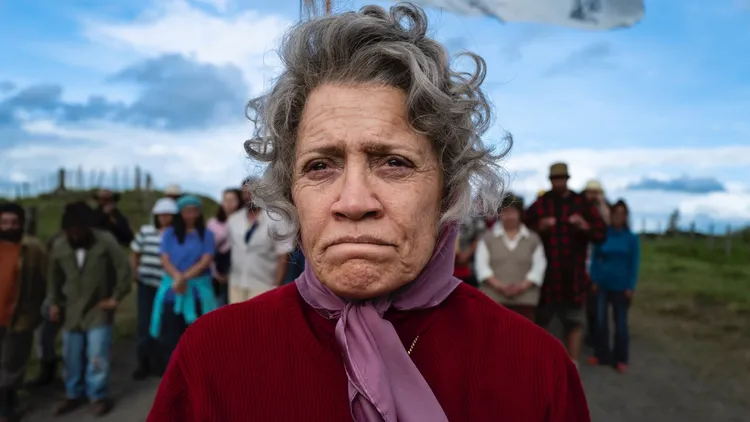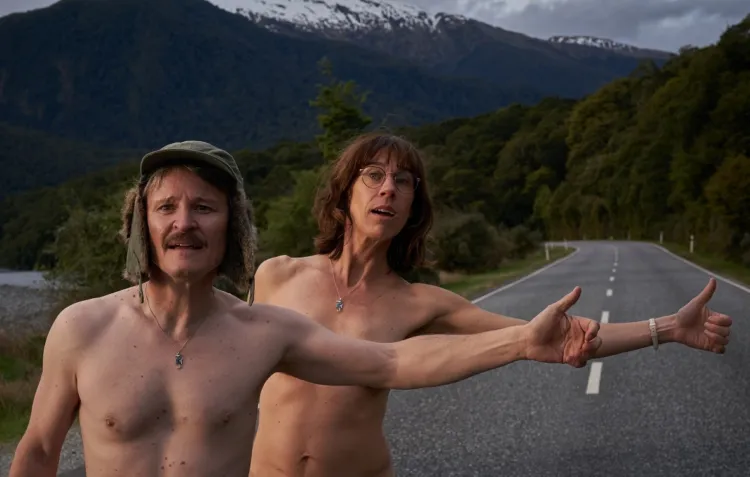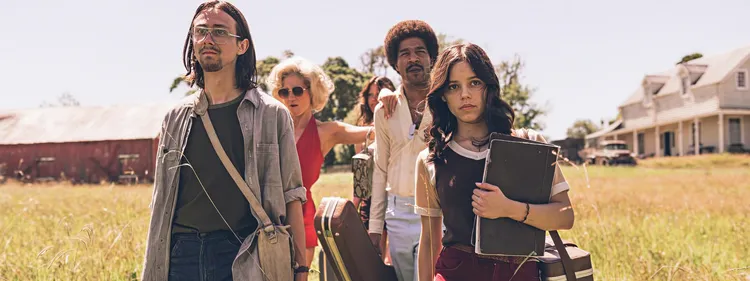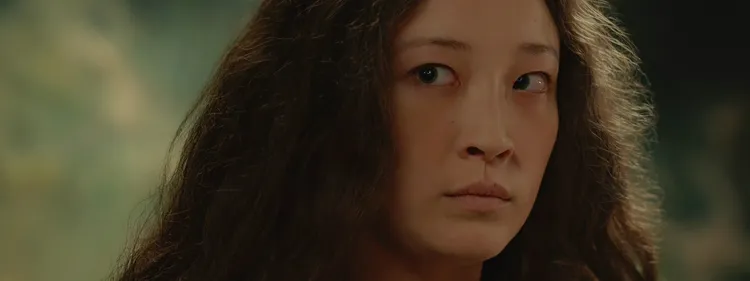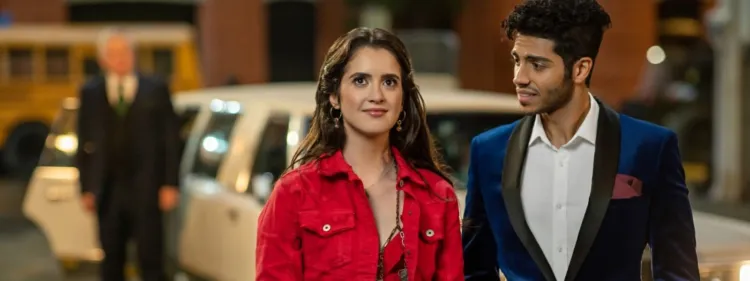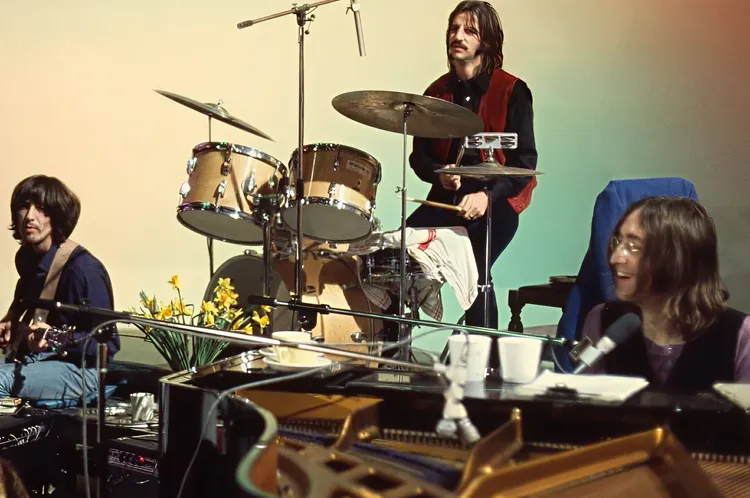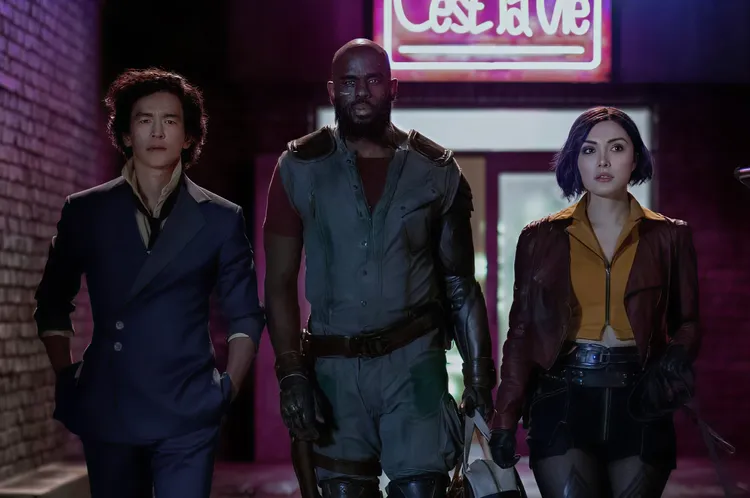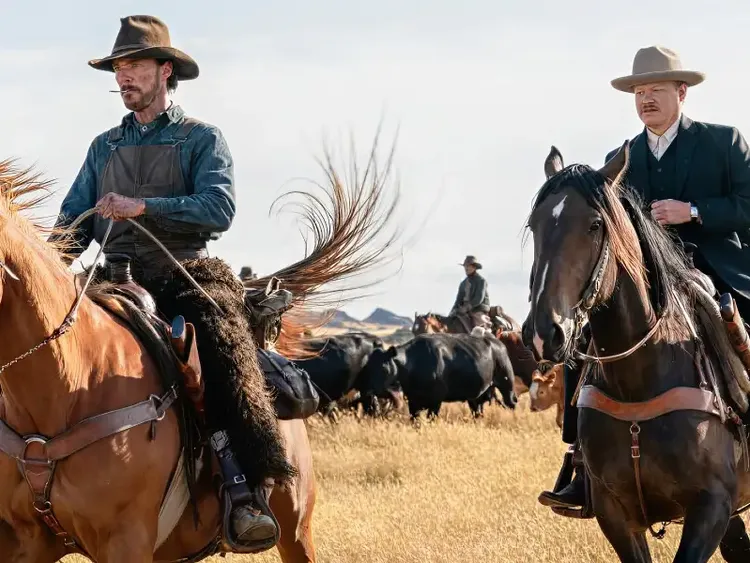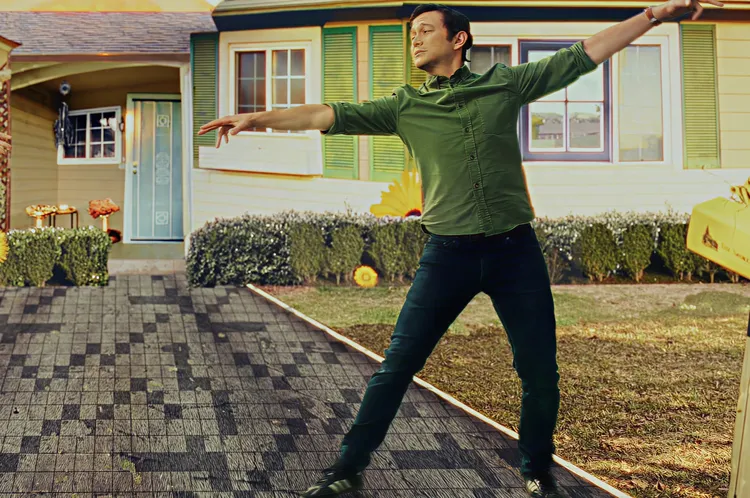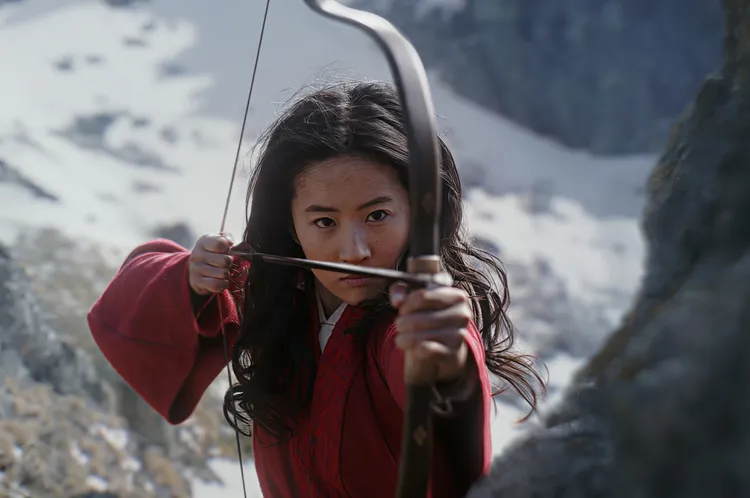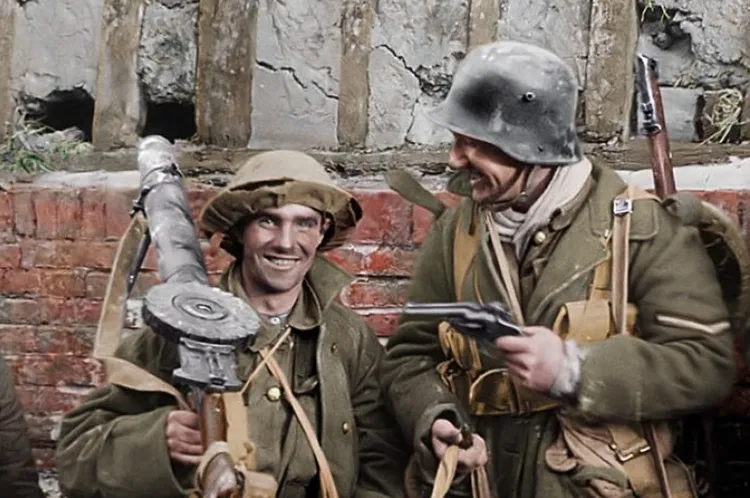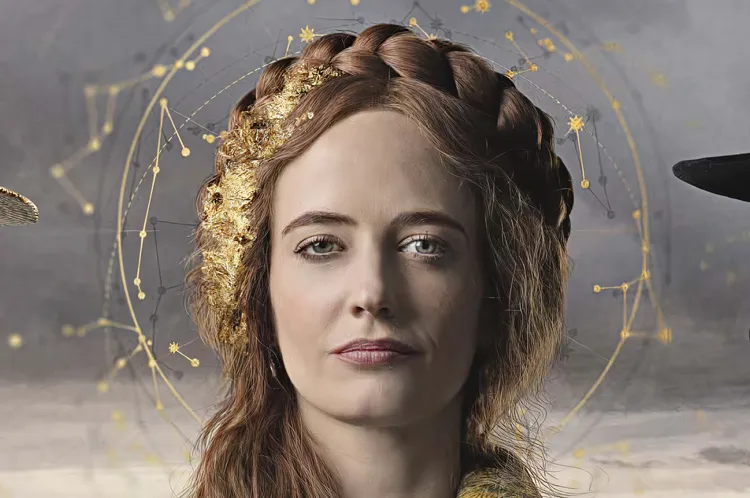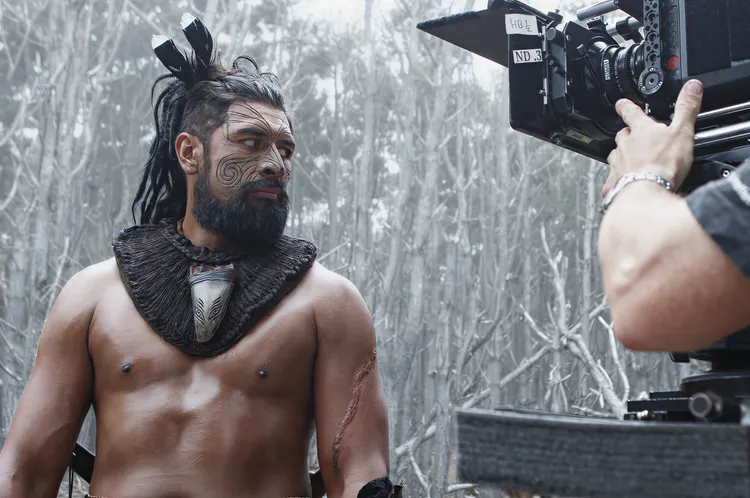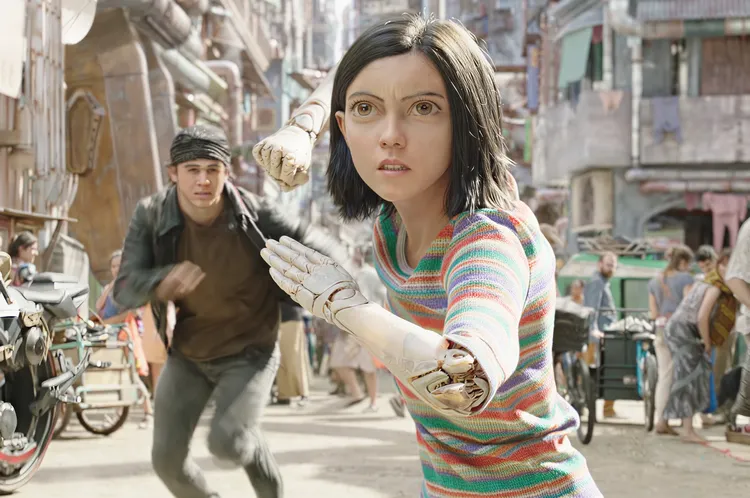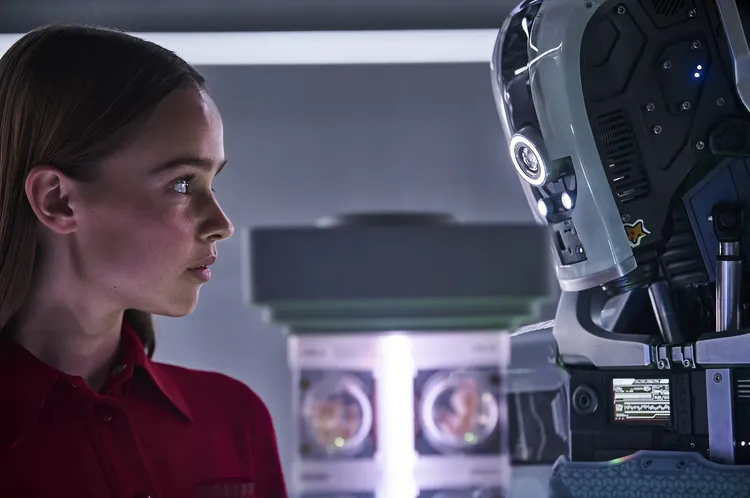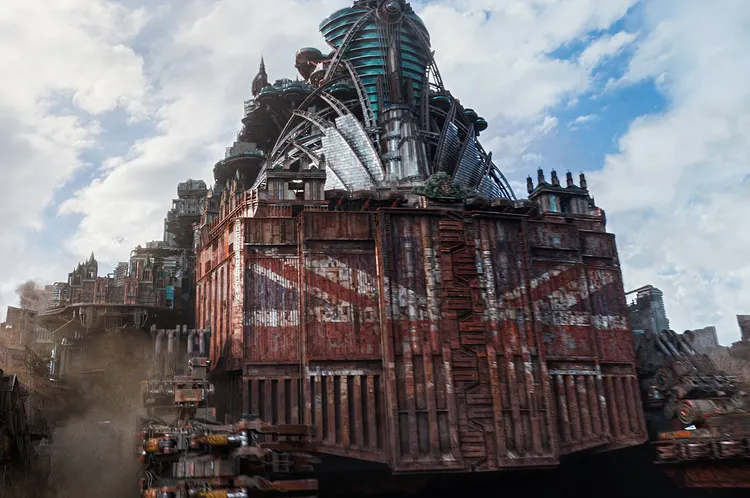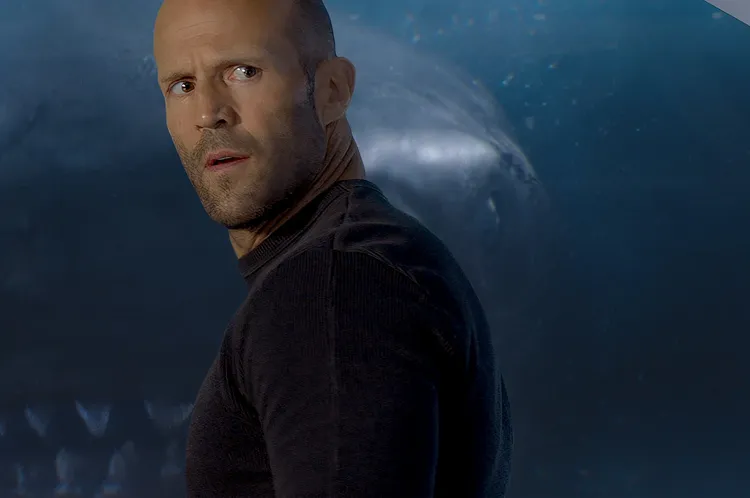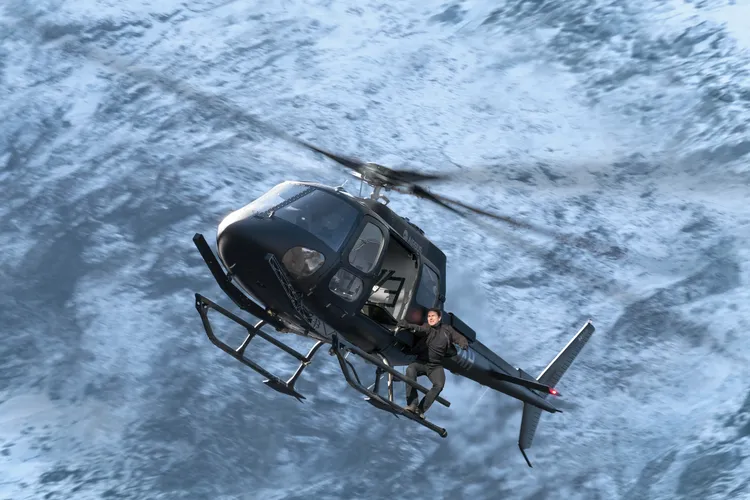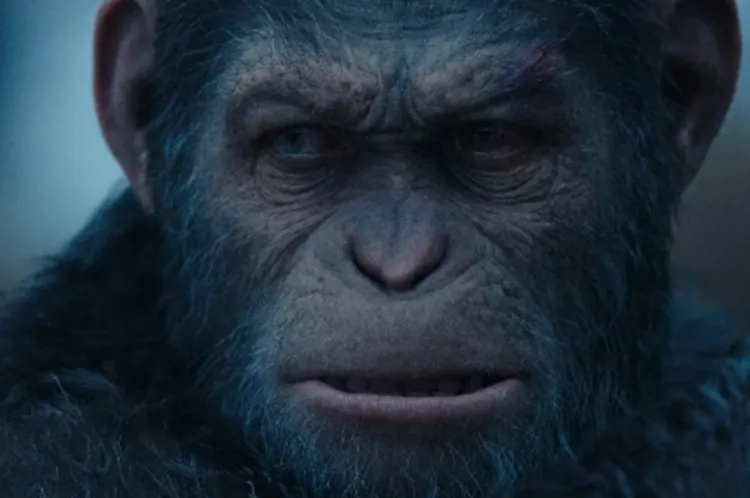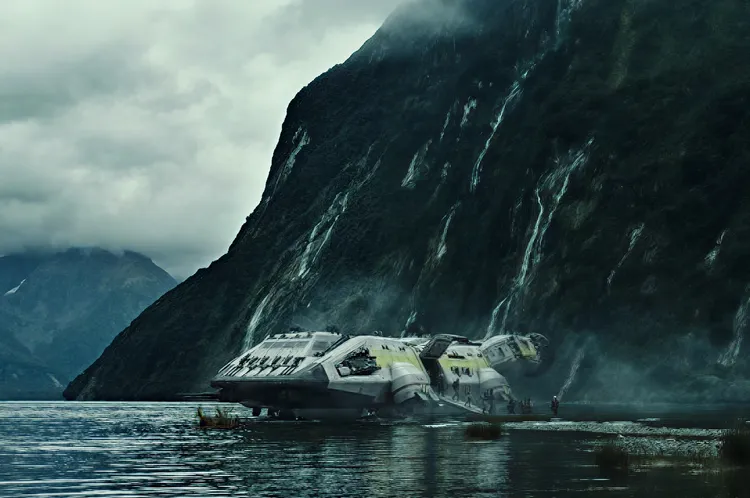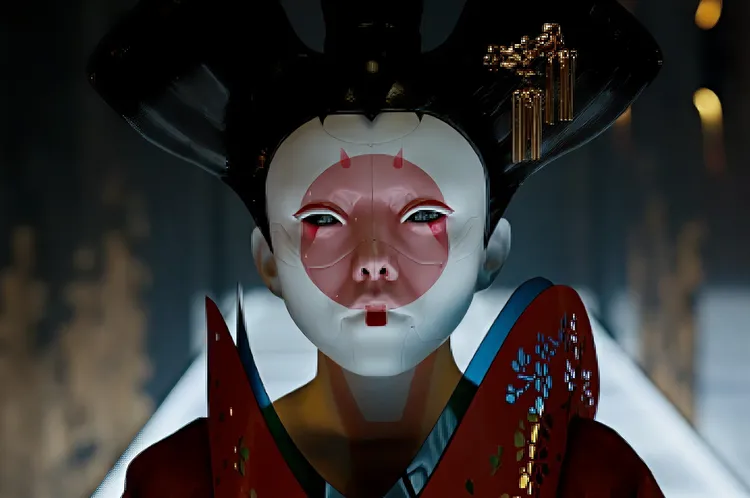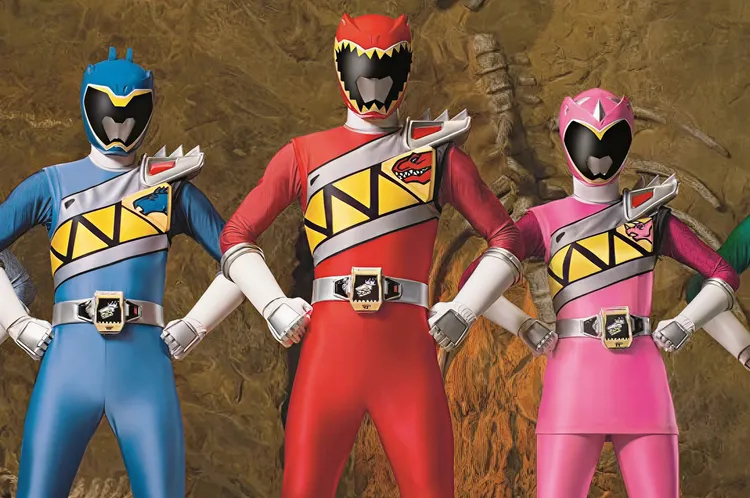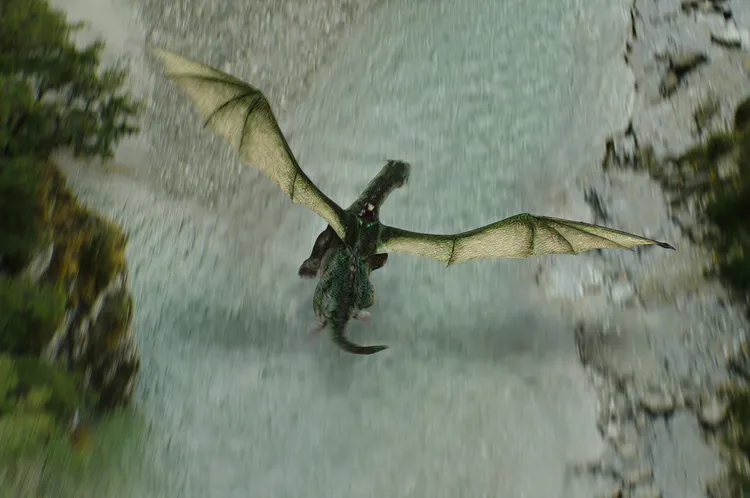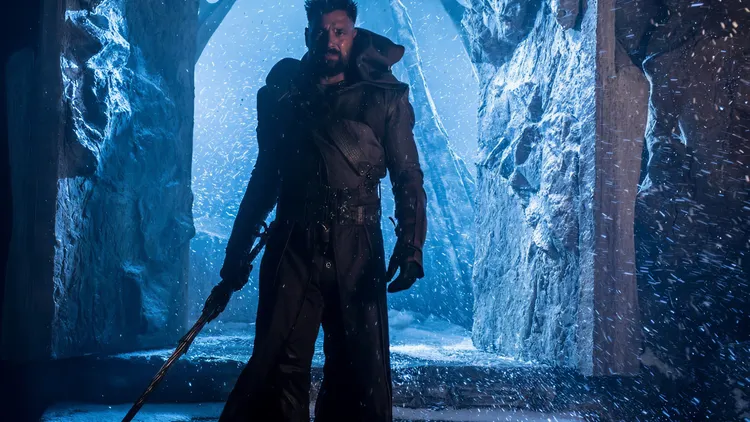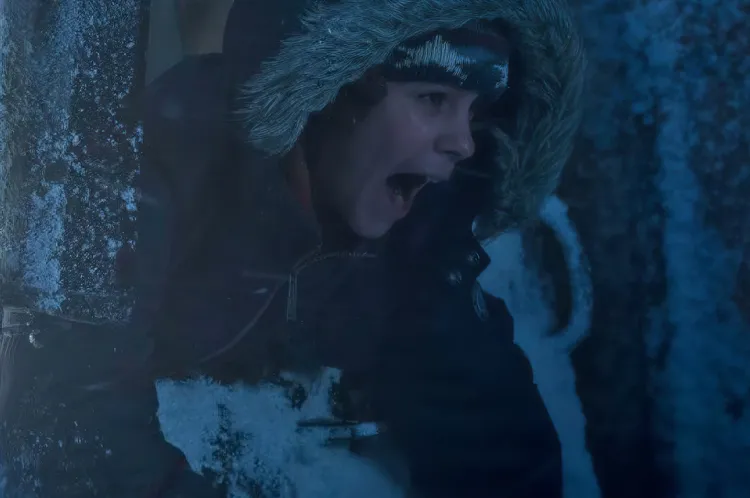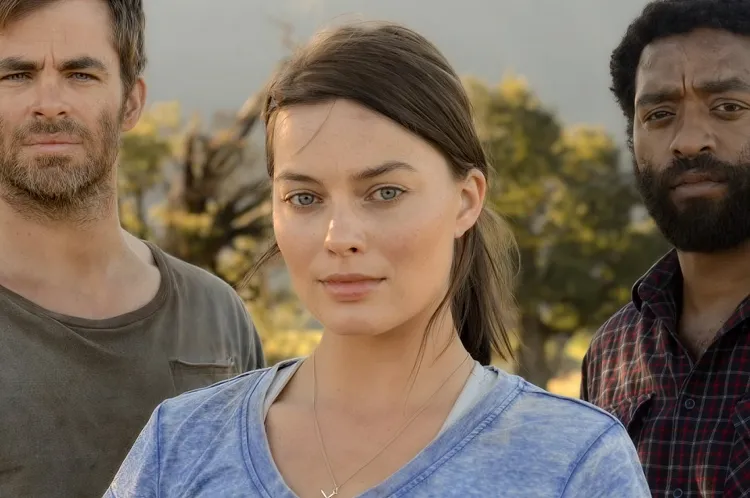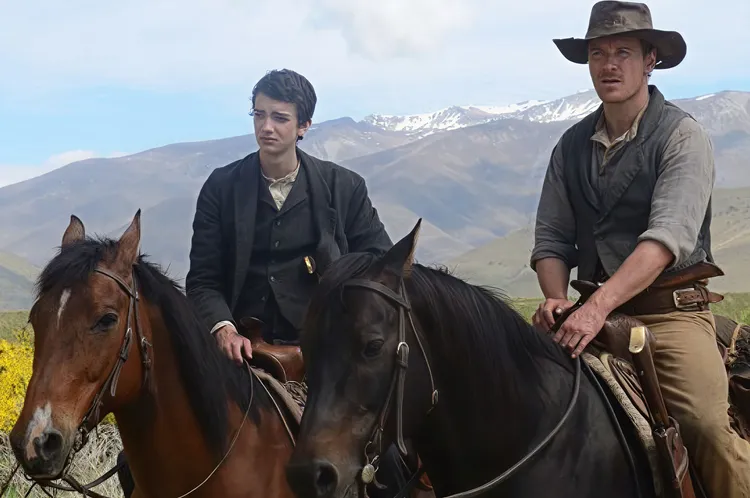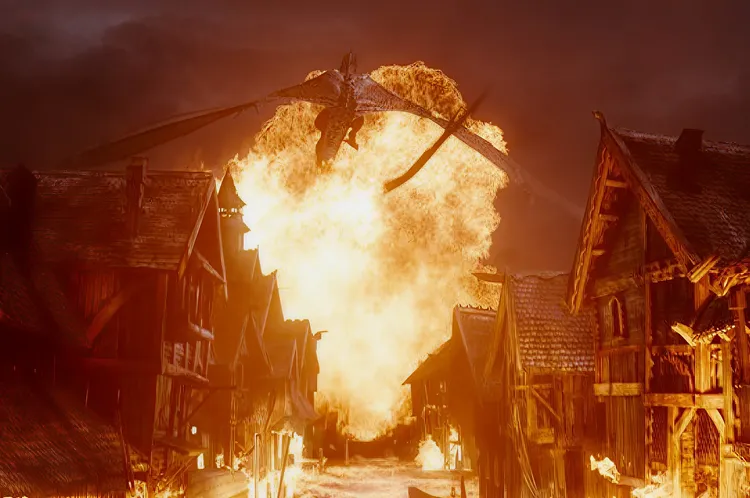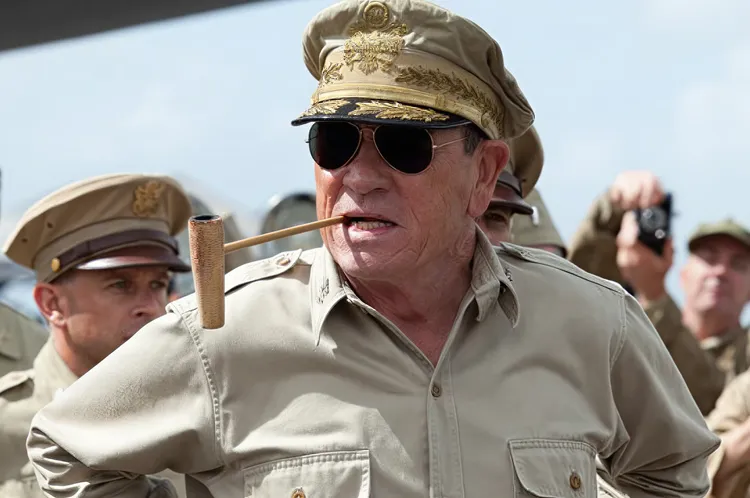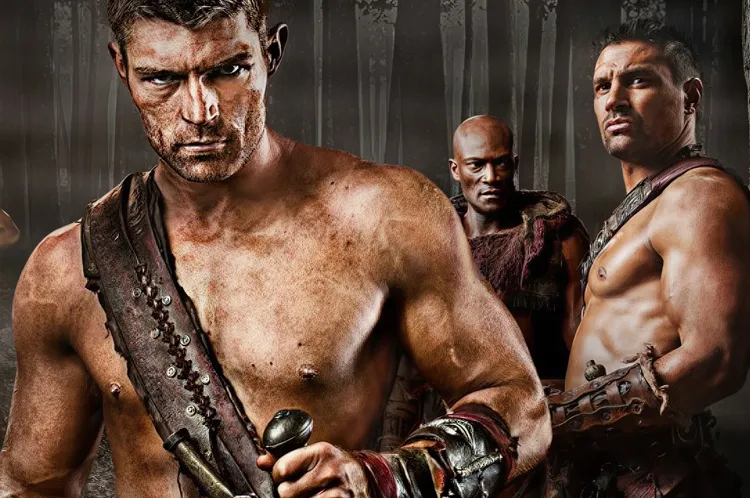Keskidee Aroha
Keskidee, a small Jamaican bird resilient in the face of hardship, is also the name of a self-help black arts centre in London, and the theatre group who work there.
Keskidee's actors and musicians were brought to New Zealand to work...
New Zealand Production
Short
1979
Documentary
54.00 minutes
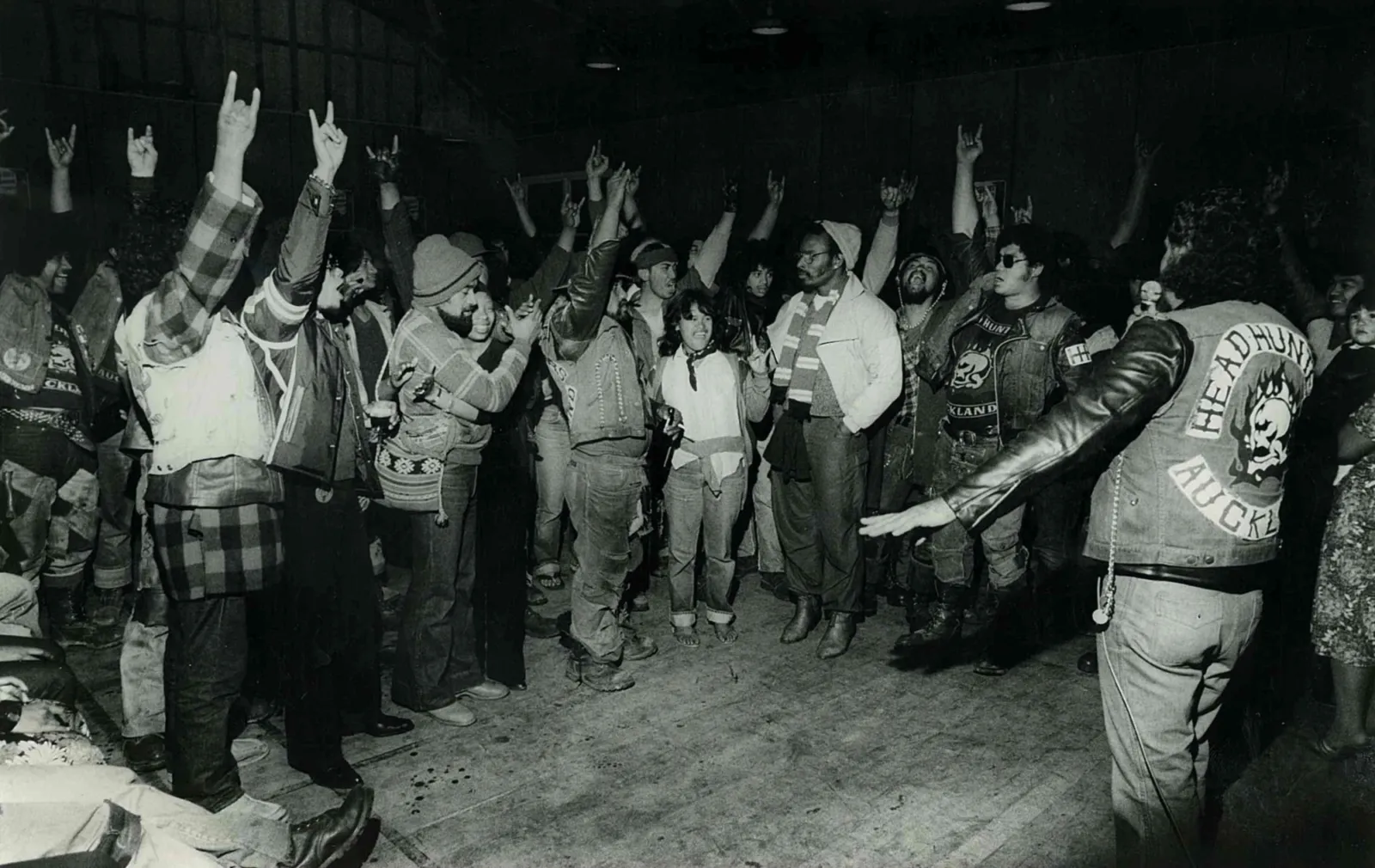
Two cultures learn about each other as a black theatre group from London tours remote Māori communities in New Zealand.
Directors
Martyn Sanderson
Merata Mita
Producers
Martyn Sanderson
Merata Mita
Screenplay Writers
Martyn Sanderson
Merata Mita
Cast
Martyn Sanderson
Commentary
Commentary
Crew
Kevin Hayward
|
DOP
Annie Collins
|
Editor
Production Company
Other featured productions
Discover the powerful stories and breathtaking visuals brought to life by our talented New Zealand and International filmmakers.
-

A Minecraft Movie
Feature 2025 Action & Adventure ComedyInternational Released -

Heart Eyes
Feature 2025 HorrorInternational Released -

Wolf Man
Feature 2025 HorrorInternational Released -

Saving Bikini Bottom: The Sandy Cheeks Movie
Feature 2024 Family ComedyInternational Released -

Time Bandits
Feature Action & Adventure Sci-Fi & FantasyInternational Released -

Sweet Tooth
Series 2021 Drama Adventure Sci-Fi & FantasyInternational Released -

Kingdom of the Planet of the Apes
Feature 2024 Sci-Fi & Fantasy Adventure DramaInternational Released -

Our Flag Means Death
Series 2022 Comedy Action & AdventureInternational Released -

The Tank
Feature 2023 HorrorNew Zealand Released -

Evil Dead Rise
Feature 2023 HorrorInternational Released -

M3GAN
Feature 2023 HorrorInternational Released -

Avatar: The Way of Water
Feature 2022 Action & Adventure Sci-Fi & FantasyInternational Released -

Pearl
Feature 2022 Coming-of-Age HorrorInternational Released -

Muru
Feature 2022 Action DramaNew Zealand Released -

The Lord of the Rings: The Rings of Power
Series 2022 Sci-Fi & Fantasy Action & AdventureReleased -

Don't Make Me Go
Feature 2022 DramaInternational Released -

Whina
Feature 2022 DramaNew Zealand Complete -

Nude Tuesday
Feature 2022 ComedyNew Zealand Complete -

X
Feature 2022 HorrorInternational Released -

No Exit
Feature 2022 HorrorInternational Released -

The Royal Treatment
Feature 2022 Romantic ComedyInternational Released -

The Beatles: Get Back
2021 Music DocumentaryInternational -

Cowboy Bebop
Series 2021 Sci-Fi & FantasyInternational Released -

The Power of the Dog
Feature 2021 Western DramaInternational Released -

Mr. Corman
Series 2021 ComedyInternational Released -

Mulan
Feature 2020 Action & Adventure Sci-Fi & FantasyInternational Released -

They Shall Not Grow Old
Feature 2019 DocumentaryNew Zealand Released -

The Luminaries
Series 2021 DramaInternational Released -

The Dead Lands (TV)
Series 2020 Action HorrorInternational Released -

Alita
Feature 2019 Sci-Fi & FantasyInternational Released -

I Am Mother
Feature 2019 Sci-Fi & FantasyInternational Released -

Mortal Engines
Feature 2018 Sci-Fi & Fantasy Action & AdventureInternational Released -

The Meg
Feature 2018 Sci-Fi Action Horror ThrillerInternational Released -

Mission: Impossible - Fallout
Feature 2018 Action & AdventureInternational Released -

War for the Planet of the Apes
Feature 2017 Action & AdventureInternational Released -

Alien Covenant
2017 Sci-Fi & Fantasy HorrorInternational -

Ghost in the Shell
Feature 2017 Sci-Fi Crime ActionInternational Released -

Power Rangers
Series 2015 Action & Adventure FamilyInternational Released -

Disney's Pete's Dragon
2016International -

The Shannara Chronicles - Season 2
Series 2017 Fantasy Horror Action & Adventure DramaInternational Released -

Krampus
Feature 2015 Horror ComedyInternational Released -

Z for Zachariah
Feature 2015 Romance Sci-Fi ThrillerInternational Released -

Slow West
Feature 2015 Romance Western Action & Adventure DramaInternational Released -

The Hobbit Trilogy
FeatureInternational Released -

Emperor
Feature 2013 War Historical DramaInternational Released -

Spartacus
Series 2011 Historical DramaInternational Released
Kōrero mai
Let's Talk
->
Ready to connect and collaborate? Our team is ready to support your next steps.
